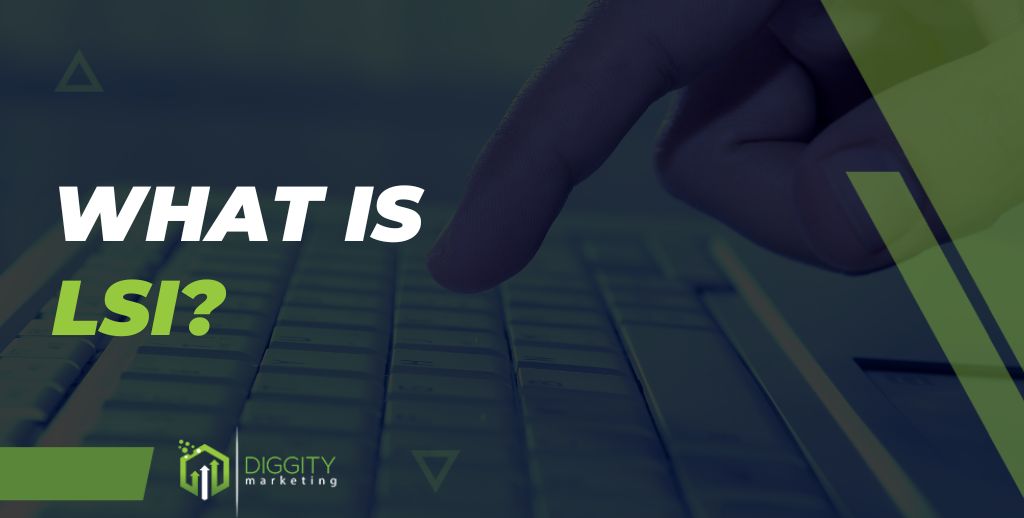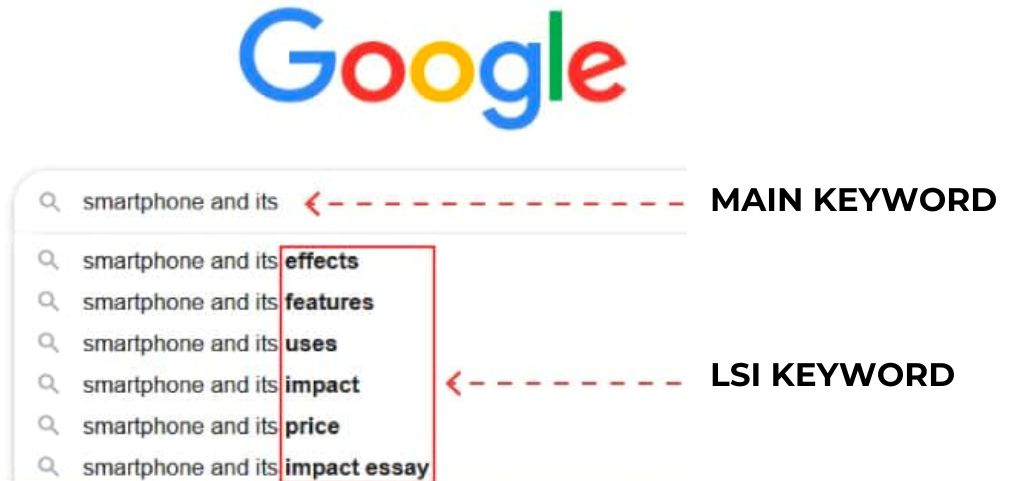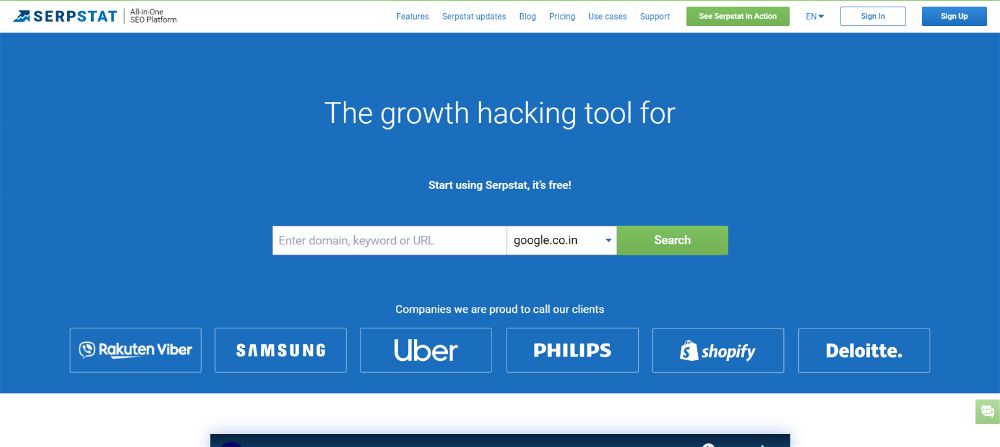
The key to creating great content is context. Over 15 percent of Google’s related searches are new terms that users have never searched for, and there are trillions of new searches every day.
LSI keywords are a part of search engine optimization that help you with ranking and related searches. Drawing from our years of experience with search engine optimization, we will discuss what LSI keywords are and the benefits of using these keywords.
Table Of Contents
- Quick Summary
- What Are LSI Keywords?
- What Is Latent Semantic Indexing?
- The Benefits Of Using LSI Keywords
- The Limitations of Using LSI Keywords
- What Is the Impact of LSI Keywords on Search Engines And SEO?
- How to Find Semantically Related Terms with LSI Keyword Tools
- How to Use LSI Keywords for SEO
- FAQs
- Are LSI Keywords Worth Your Time?
Quick Summary
LSI keywords are keywords semantically related to a main keyword.
The latent semantic index is a natural language processing technique that helps identify contextual relationships between words and other phrases.
There are several benefits to using LSI keywords, including a boost to your ranking with a search engine, improving the relevance of your content, and increasing your reach to your audience.
What Are LSI Keywords?
LSI keywords are phrases and words related to the main keyword. For example, if your target keyword is a credit card, LSI keywords may include credit score, interest rate, etc. They aren’t synonyms of the main keyword.

Google and other search engines have now moved beyond indexing pages for single keywords, and the algorithms use closely related words and phrases to give context to content.
What Is Latent Semantic Indexing?
Latent semantic indexing or latent semantic analysis is a natural language processing technique created in the 1980s to identify the contextual relationship between words and phrases.
Latent Semantic Indexing finds the hidden relationship between words and phrases to improve information understanding. Understanding page content can help determine the topic based on how the language is used.
The Benefits Of Using LSI Keywords
There are several benefits to using LSI keywords to help to rank in Google search queries, including:
Boost Ranking: Adding LSI keywords in your text helps search engines to understand the content of your page and boost your rating.
Improve Content Relevance: Adding related keywords ensures you don’t overload your content with semantically related words.
Increase Reach: LSI semantically related words help create a better search experience for users and help various ranking factors.
The Limitations of Using LSI Keywords
LSI keywords don’t have specific disadvantages; however, the indexing method does have certain limitations, including:
It considers semantically related words only to have one meaning.
It doesn’t recognize underlying keyword ideas or irony.
It does not consider the order of words and disposes of conjunctions and prepositions.
What Is the Impact of LSI Keywords on Search Engines And SEO?
With the update of LSI semantically related words, Google’s crawling method was changed, which resulted in several SEO improvements:
Google Understands Pages Better – Google scans your page for main keywords and related words so they can work to find out what the overall page topic is by relying on latent semantic indexing to understand the content on a deeper level.
Google Reads A Website Contextually – Google’s algorithm has the ability to read a page and categorize keywords depending on the context. Google can now even tell the difference between literal and figurative expressions.
Google Generates More Relevant Search Results For Web Pages – Google identifies words that can often occur together to help search engines easily understand the main topic of the web page that it scans. By using more accurate categorization, the search results of the search engine become more relevant.
Google Factors In An Overall Picture Of Your Business – Google’s algorithm is designed to factor in your business name, website, and industry to allow it to understand each page of your website and how it relates to your business as a whole.
Good SEO work only becomes better over time. Only search engine tricks need to keep changing when ranking algorithms change.
– Jill Whalen, Co-Founder at Search Engine Marketing New England
How to Find Semantically Related Terms with LSI Keyword Tools
The first step in the keyword research process to find LSI keywords is to create crucial keyword ideas for your business. Once you have a keyword list, adding related words should be simple.
Here are some LSI keyword tools that you can use to find LSI keywords.
1. Google Autocomplete
Google’s instant search feature, Google Autocomplete, is one of the easiest ways to find related keywords. You type in your target keyword and are given a range of suggestions and semantically related terms to add to your website [3].

2. Google Related Searches
You can type your main keyword into Google, scroll to the related searches section, and check out the relevant results to get ideas for your website content.
3. People Also Ask
The People Also Ask box on the Google search results page will provide you with more options associated with your keyword. You can visit some of the results to see if there are additional words you can use for your content.
4. LSI Graph
An LSI Graph is a LSI keyword generator that helps you find terms related to your page’s main keyword.
5. SEO Tools
SEO tools such as Serpstat, Ahrefs, and Moz can help you find related words to your primary keyword.

These SEO tools not only provide a list of related keywords that people search the entire web for based on the topic, but they also allow you to filter words and phrases by search volume, connection strength, and more.
How to Use LSI Keywords for SEO
There are several ways to use LSI keywords to improve your SEO, including:
1. Choosing LSI Keywords For Your Topic
Before you figure out how to add LSI keywords to your text, you need to identify which keywords are best for your topic. Choose a main keyword and find similar keywords with SEO tools or by yourself.
2. View The Total Monthly Search Estimate
Determining the best LSI keywords to use can sometimes be challenging. You will need to determine if the keyword suggestion would make more sense as an individual article or as an addition to an original post.

You can look at the monthly search estimate to decide how to proceed. The keywords that SEO tools offer will work for different contexts, and you will need to determine which ones will work best for your page.
3. Add LSI Keywords
Add LSI keywords to the same places you would add the primary keyword, including:
Meta title and description
Headings
Image alt text
Throughout the body of the text
Ensure that you are adding related words throughout your post in a natural way to help broaden your opportunities.
4. Focus On User Experience
Don’t overuse your LSI keywords within the content. You want to include enough related keywords to help Google understand the content of your page, but without ruining the reader’s experience.
To do this, you need to add related keywords while keeping the content natural and easy to follow. This will help you avoid penalties and improve your visitor’s experience.
FAQs
What Is The Main Difference Between Long Tail Keywords And LSI?
The main difference between long tail keywords and LSI is that LSI keywords are semantically related while long tail keywords are a lengthened form of your target keywords. Long tail keywords consist of words or phrases that are meant to satisfy search intent.
Why Should I Use LSI Keywords?
You should use LSI keywords because they can boost the contextuality of your content and provide many SEO benefits. Using LSI keywords can boost your website’s ranking and help Google to understand your webpage.
Are LSI Keywords Considered Secondary Keywords?
Yes, LSI keywords are considered secondary keywords that are synonyms of your target or primary keyword. LSI keywords can help you rank with search engines.
Which LSI Keywords Are Best To Target?
The LSI keywords that are the best to target are a mix of head terms and long tail keywords. Head terms are short, competitive, high-volume keywords, and long tail keywords are a lengthened form of your target keywords.
What Is The Main Issue With Latent Semantic Analysis?
The main issue with latent semantic analysis is the inability to capture multiple meanings of a word. Especially in the English language, a word can have various different meanings, and this can be hard to pick up on with LSA.
Does Google Penalize Websites For Keyword Stuffing?
Yes, Google penalizes websites for keyword stuffing. Attempting to manipulate search rankings by repeating keywords or phrases will cause your website to rank lower in Google search results.
Are LSI Keywords Worth Your Time?
Yes, LSI keywords are worth it. Having keywords and phrases related to your primary keyword can help you boost your rankings and allow Google and other search engines to fully understand your website’s context.
The critical thing to remember is to use LSI keywords where they make sense to meet search engines’ requirements but do not affect the user experience.
As long as you do this, using LSI keywords can increase your website’s reach and ranking and make the experience enjoyable for your readers.
